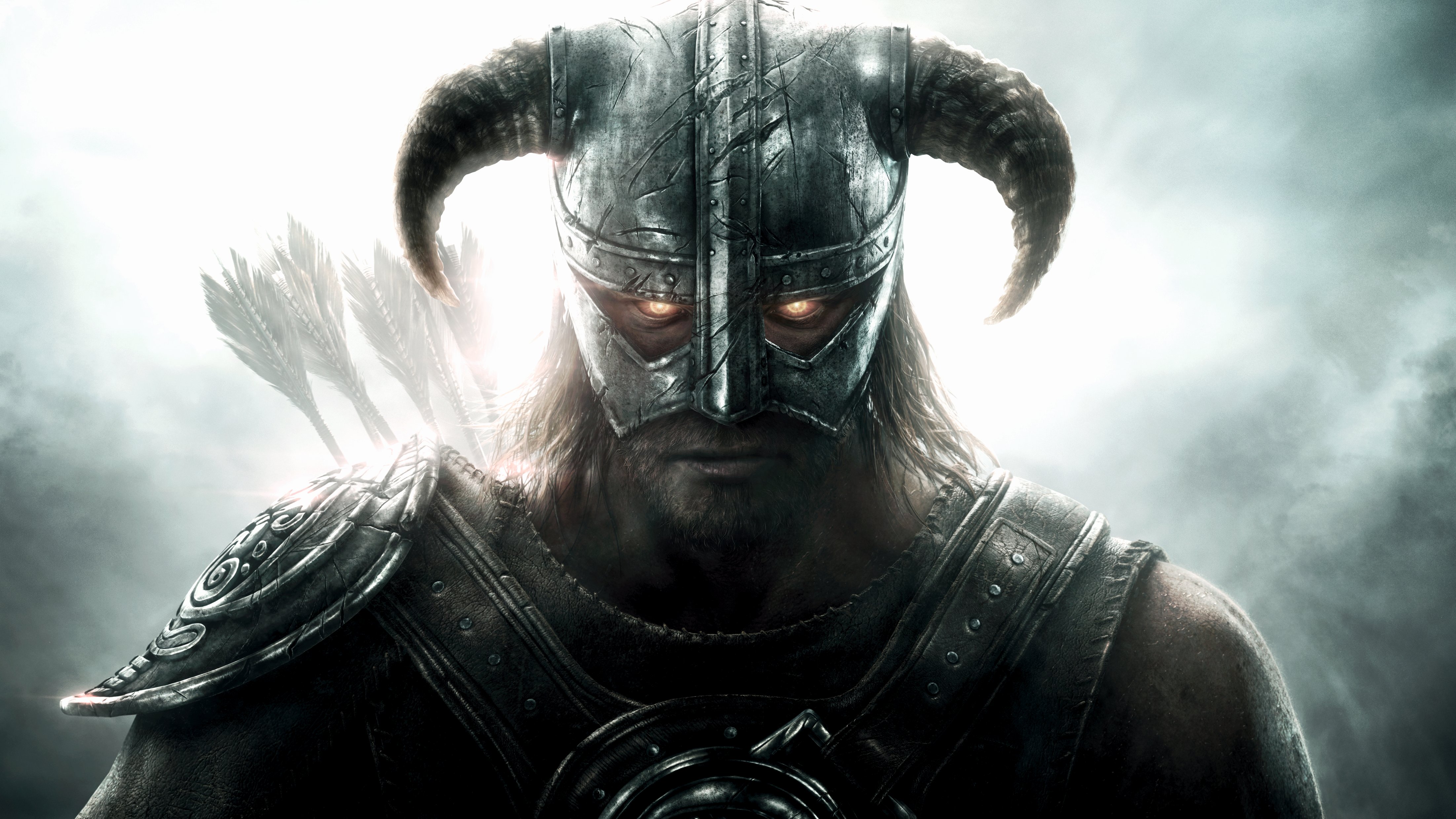Former Bethesda lead is sceptical of The Elder Scrolls' return to 'fiddly stat sheets', even in the face of Baldur's Gate 3's success
No fuss with your roh-dah.

Keep up to date with the most important stories and the best deals, as picked by the PC Gamer team.
You are now subscribed
Your newsletter sign-up was successful
Want to add more newsletters?

Every Friday
GamesRadar+
Your weekly update on everything you could ever want to know about the games you already love, games we know you're going to love in the near future, and tales from the communities that surround them.

Every Thursday
GTA 6 O'clock
Our special GTA 6 newsletter, with breaking news, insider info, and rumor analysis from the award-winning GTA 6 O'clock experts.

Every Friday
Knowledge
From the creators of Edge: A weekly videogame industry newsletter with analysis from expert writers, guidance from professionals, and insight into what's on the horizon.

Every Thursday
The Setup
Hardware nerds unite, sign up to our free tech newsletter for a weekly digest of the hottest new tech, the latest gadgets on the test bench, and much more.

Every Wednesday
Switch 2 Spotlight
Sign up to our new Switch 2 newsletter, where we bring you the latest talking points on Nintendo's new console each week, bring you up to date on the news, and recommend what games to play.

Every Saturday
The Watchlist
Subscribe for a weekly digest of the movie and TV news that matters, direct to your inbox. From first-look trailers, interviews, reviews and explainers, we've got you covered.

Once a month
SFX
Get sneak previews, exclusive competitions and details of special events each month!
Baldur's Gate 3 was one of last year's biggest critical and commercial successes—selling bonkers numbers and taking the crown of our annual top 100 list. We rather liked it, in case you couldn't tell.
What's more, it did so against what big-budget companies making RPGs would like you to believe is convention. It's a turn-based RPG that directly uses a TTRPG system, Dungeons & Dragons 5th edition, and there's nary a quick-time event in sight. I'd even argue that it's even more demanding than its parental D&D ruleset, since it has you controlling four characters (in a singleplayer campaign, at least), while also letting you equip tons of magic items (5th edition, in contrast, usually only lets you attune to three major ones).
Meanwhile, long-standing RPGs like Dragon Age and Final Fantasy have gone all action-based in recent years. While Bethesda games always had an element of this, being first person and all, they've more recently leaned harder in this direction—shedding RPG mechanics and complexity like Todd Howard got really into a book called The Life-Changing Magic of Removing Stats.
Even compared to Skyrim, Starfield felt particularly thin on the RPG mechanics. I never quite felt like I was playing an archetype of a character, just a suggestion of one. That's not likely to change, though, according to a former Bethesda developer in an interview with Videogamer. Bruce Nesmith, who took lead on Skyrim, explains his reasoning:
"When you look at something like Baldur’s Gate 3, I think that’s a very different animal. They had a very specific charge. They were taking Dungeons & Dragons 5th edition and putting it onto a computer game. So it was intentionally looking backwards … It was, you know, reflecting back to the good old days."
Mmm. I don't think Nesmith's completely wrong—Baldur's Gate 3 is a bit of an outlier, and unless you're one of the big boys like Atlus, a crunchy RPG is a bit of a hard sell. But I'm not actually convinced that TTRPGs are a bygone relic, or that BG3 was catering to nostalgia. D&D has experienced a ton of recent success in the past decade thanks to stuff like Critical Role. I mean, heck—Dungeons & Dragons 5th edition is actually four years younger than Skyrim, which is the game Nesmith designed!
Still, he's unconvinced that BG3 "presages a complete change over back to more numbers and more fiddly character sheets and things like that" for Bethesda, adding "whether or not the rest of the industry will follow suit, I don’t know. I’m not smart enough to say that. But I think that through Skyrim, Bethesda has wanted to have the game get out of its own way.
Keep up to date with the most important stories and the best deals, as picked by the PC Gamer team.
"You see that everywhere in Skyrim. Todd is a big proponent of the interface vanishing if you’re not doing something that needs it to be visible. So all you see is the world. That’s it. You just see the world."
I'm not gonna lie, that bums me out a little. As someone who started playing Bethesda RPGs around the time of Oblivion, I always felt like that game had the right balance of fiddly RPG nonsense (spell creation, enchantment, having to pick a set of skills that would advance faster, and so on) and action combat. It feels a little archaic nowadays, but I at least felt like I was sort of playing a class, and I can't help but wonder what a modern version of Oblivion would be like.
I'd also generally disagree with the idea that interfaces (and fiddly RPG mechanics) are the enemies of immersion. To harken back to TTRPGs for a moment, I've been fully immersed in the consequences of a d20 roll despite staring at a featureless sheet full of numbers—mechanics can tell a story and (in the case of my recent Pathfinder 2e adventures) can actually elevate it.
Just ask anyone who plays Dwarf Fortress, recounting their tales of pixeldom as if they were big-budget VR dramas they personally experienced. Bethesda's pursuit of removing these perceived walls feels, to me, a condescending underestimation of the player's imagination.
I'm reminded of that one infamous talk (which in fairness is eight years old) from Bethesda lead Emil Pagliarulo, which has a lot to say about how players will just tear apart your story and to "keep it simple, stupid". Like we'll somehow get an explosive migraine if we have to put a stat point somewhere, or, heaven forbid, read something thought provoking. Again, another thing Baldur's Gate 3 proved incorrect—plenty of mature themes and textured writing going on there.
But that could also just be my nostalgia talking. That's the thing about Bethesda sanding off edges with every entry. I'd wager there are Skyrim fans who think that game nailed the balance perfectly, or seasoned Morrowind RPG sages who have a deep appreciation for that game's unassailable mechanics (sorry, Josh). But if Todd's always thought that a race towards immersion's more important than flavourful RPG mechanics, I guess that's the road they're gonna keep going down.

Harvey's history with games started when he first begged his parents for a World of Warcraft subscription aged 12, though he's since been cursed with Final Fantasy 14-brain and a huge crush on G'raha Tia. He made his start as a freelancer, writing for websites like Techradar, The Escapist, Dicebreaker, The Gamer, Into the Spine—and of course, PC Gamer. He'll sink his teeth into anything that looks interesting, though he has a soft spot for RPGs, soulslikes, roguelikes, deckbuilders, MMOs, and weird indie titles. He also plays a shelf load of TTRPGs in his offline time. Don't ask him what his favourite system is, he has too many.

